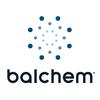Improving lactational Efficiency by modulating absorption of micronutrients in the dairy cows
Published: July 1, 2019
Source : Dr. Amit Kumar Pandey, PhD (VPT), Dr. Manish Mukherjee.
Introduction:
Dairying has been considered to be one of the livelihood options for rural poor people, especially for landless, marginal, and small farmers in India and world. Generally, the productivity in dairy sector is low and smallholders are constrained by lack of access to quality feed. Although professionals have pointed out the importance of feeding, the ground realities or practices about concentrate feeds is entirely different. Due to shrinkage of grazing land and non-availability of green fodder, animal lacks essential macro and micro nutrients through feed.

Especially in high yielding milking cow balance of micronutrients (Calcium, vitamin D3 and vitamin B12 ) in the feed is very important for optimum and constant milk production. The role of calcium and Phosphorus is also important to maintain feed intake and milk production in dairy animals. Phosphorus is involved in energy utilization and transfer, acid-base and osmotic balance, and for cattle, it is required by ruminal microbes for growth and cellular metabolism.
When we are talking about vitamins, along with vitamin D the role of Vitamin B12 cannot be neglected in dairy cattle. The nature of the ruminant digestive system imposes a huge dependence on gluconeogenesis because very little glucose is being absorbed. Vitamin B12 plays a critical role in the process of gluconeogenesis from fatty acids to supply adequate glucose for various tissues.
One of the major substrates for gluconeogenesis is propionate. Metabolic utilization of propionate after its absorption from the gastrointestinal tract is dependent on the transformation of propionate into succinyl-coenzyme A, requiring the successive actions of biotin- and vitamin B12-dependent enzymes. Propionate is first transformed into propionyl-CoA, which is carboxylated to methylmalonyl-CoA by a biotin-dependent enzyme, propionyl-CoA carboxylase. Methylmalonyl-CoA is then isomerized in succinyl-CoA under the action of the vitamin B12-dependent enzyme, methylmalonyl-CoA mutase. Succinyl-CoA finally enters into the Krebs cycle, from where it can be directed toward gluconeogenesis.
Current Practices
Generally, Vitamin B12 is also synthesized in rumen with the help of ruminal microbes in the presence of cobalt only. On average, 3% of dietary cobalt is converted to vitamin B12, and only 1% to 3% of the vitamin B12 synthesized in the rumen is absorbed from the small intestine. Though Vitamin B12 is synthesized in rumen still adequate level of cobalt is required in the diet and during high production period when the energy requirement is very high Vitamin B12 is also recommended to be given along with feed to maintain the energy balance and optimum milk production.
Introduction:
Dairying has been considered to be one of the livelihood options for rural poor people, especially for landless, marginal, and small farmers in India and world. Generally, the productivity in dairy sector is low and smallholders are constrained by lack of access to quality feed. Although professionals have pointed out the importance of feeding, the ground realities or practices about concentrate feeds is entirely different. Due to shrinkage of grazing land and non-availability of green fodder, animal lacks essential macro and micro nutrients through feed.
Especially in high yielding milking cow balance of micronutrients (Calcium, vitamin D3 and vitamin B12 ) in the feed is very important for optimum and constant milk production. The role of calcium and Phosphorus is also important to maintain feed intake and milk production in dairy animals. Phosphorus is involved in energy utilization and transfer, acid-base and osmotic balance, and for cattle, it is required by ruminal microbes for growth and cellular metabolism.
When we are talking about vitamins, along with vitamin D the role of Vitamin B12 cannot be neglected in dairy cattle. The nature of the ruminant digestive system imposes a huge dependence on gluconeogenesis because very little glucose is being absorbed. Vitamin B12 plays a critical role in the process of gluconeogenesis from fatty acids to supply adequate glucose for various tissues.
One of the major substrates for gluconeogenesis is propionate. Metabolic utilization of propionate after its absorption from the gastrointestinal tract is dependent on the transformation of propionate into succinyl-coenzyme A, requiring the successive actions of biotin- and vitamin B12-dependent enzymes. Propionate is first transformed into propionyl-CoA, which is carboxylated to methylmalonyl-CoA by a biotin-dependent enzyme, propionyl-CoA carboxylase. Methylmalonyl-CoA is then isomerized in succinyl-CoA under the action of the vitamin B12-dependent enzyme, methylmalonyl-CoA mutase. Succinyl-CoA finally enters into the Krebs cycle, from where it can be directed toward gluconeogenesis.
Current Practices
Generally, Vitamin B12 is also synthesized in rumen with the help of ruminal microbes in the presence of cobalt only. On average, 3% of dietary cobalt is converted to vitamin B12, and only 1% to 3% of the vitamin B12 synthesized in the rumen is absorbed from the small intestine. Though Vitamin B12 is synthesized in rumen still adequate level of cobalt is required in the diet and during high production period when the energy requirement is very high Vitamin B12 is also recommended to be given along with feed to maintain the energy balance and optimum milk production.
Bottlenecks
After two months of milking phase the daily milk yield decline due to the decreased resorption of calcium and phosphorus from the bone. An adequate amount of calcium and phosphorus is required in the diet to not only maintain the optimum production of milk but to maintain the normal healthy condition of bone and muscles. Along with calcium, vitamin D is also required for the efficient absorption of the calcium from the intestine.
Proposed Solution
The above mentioned points are enough to understand that balanced mineral and Vitamin program in the feed of the cattle is a notch in the key to success in a dairy farming.
So such solutions/ products are required which can boost the decline in milk yield in the mid or last phase of milking cycle. Which are the perfect combinations of important macronutrients and micronutrients. Caldhan V is one its kind of solution, which contains calcium, phosphorus, Vitamin D3 and vitamin B12 in perfect proportion to optimize milk production in dairy cattle and growth in young animals. Now, we have very interesting and stringent test report, which shows the efficacy of the Caldhan V in increasing milk yield of animal and economy of the farm.
Plan of research.
Twelve number of cross breed cows were divided into two groups control and Treatment. The trial was conducted for 90 days in which treatment schedule was 60 days (16th to 75th day). From day 76 to 90 of the post administration no product was administered. The milk yield was recorded during the whole 90 days period of the trial.


After two months of milking phase the daily milk yield decline due to the decreased resorption of calcium and phosphorus from the bone. An adequate amount of calcium and phosphorus is required in the diet to not only maintain the optimum production of milk but to maintain the normal healthy condition of bone and muscles. Along with calcium, vitamin D is also required for the efficient absorption of the calcium from the intestine.
Proposed Solution
The above mentioned points are enough to understand that balanced mineral and Vitamin program in the feed of the cattle is a notch in the key to success in a dairy farming.
So such solutions/ products are required which can boost the decline in milk yield in the mid or last phase of milking cycle. Which are the perfect combinations of important macronutrients and micronutrients. Caldhan V is one its kind of solution, which contains calcium, phosphorus, Vitamin D3 and vitamin B12 in perfect proportion to optimize milk production in dairy cattle and growth in young animals. Now, we have very interesting and stringent test report, which shows the efficacy of the Caldhan V in increasing milk yield of animal and economy of the farm.
Plan of research.
Twelve number of cross breed cows were divided into two groups control and Treatment. The trial was conducted for 90 days in which treatment schedule was 60 days (16th to 75th day). From day 76 to 90 of the post administration no product was administered. The milk yield was recorded during the whole 90 days period of the trial.
Caldhan V supplement not only significantly improves per day milk yield but also increase in the SNF and fat content of the cow milk. This increase is due to the synergistic effect of the macro and micronutrients present in the supplement, which maintain the nutrient level along with the energy balance. Therefore, incorporation of Caldhan V in the feed of milking cow not only improves the quantity but also the quality of the milk. Caldhan V helps to reduce the production cost of per liter milk and improves net return or total profit.
Note:
Caldhan V is a unique blend of calcium, phosphorus, Vitamin D3 and Vitamin B12 that increases milk production in lactating animals and growth and production in young animals of Cattle, Buffalo, Sheep, Goat and Horse.
For more information, please write to techsupport@ayurvet.com
Related topics:
Authors:
Ayurvet Ltd.
Ayurvet Ltd.
Influencers who recommended :
Bhaskar GangulyRecommend
Comment
Share

Would you like to discuss another topic? Create a new post to engage with experts in the community.









